Security
The decision to travel is your responsibility. You are also responsible for your personal safety abroad. The Government of Canada takes the safety and security of Canadians abroad very seriously and provides credible and timely information in its Travel Advice. In the event of a crisis situation that requires evacuation, the Government of Canada’s policy is to provide safe transportation to the closest safe location. The Government of Canada will assist you in leaving a country or a region as a last resort, when all means of commercial or personal transportation have been exhausted. This service is provided on a cost-recovery basis. Onward travel is at your personal expense. Situations vary from one location to another, and there may be constraints on government resources that will limit the ability of the Government of Canada to provide assistance, particularly in countries or regions where the potential for violent conflict or political instability is high.
Crime
Exercise a high degree of caution throughout Honduras, which has one of the highest homicide rates in the world. Drug trafficking, transnational organized crime and the presence of street gangs pose significant security concerns and contribute to the high rate of crime. Apprehension and conviction rates of criminals remain low. A large percentage of the population is armed. Guns and weapons such as machetes and knives are frequently used in robberies. If you are threatened by robbers, do not resist; injuries and deaths have occurred when victims have resisted.
Serious crimeincluding armed robbery, kidnapping, carjacking, home invasion and sexual assaultis common, and armed attacks on marine vessels have been reported. Although most criminals do not target tourists, some have been victims of crime in major cities and in areas frequented by tourists, especially at night. Exercise increased vigilance in the departments along the Atlantic coast, along the border with Guatemala and in the eastern departments of Gracias a Dios, Olancho and Colón, and in rural areas north of Nacaome, Valle, and north of Choluteca, Choluteca. Exercise increased caution while in the cities of San Pedro Sula (including in vehicles leaving the airport), the Bay Islands (comprising Roatán, Útila and Guanaja), Trujillo and Tegucigalpa.
In Roatán, robbers have targeted homes and long-term leased residences. Since 2009, three Canadian citizens have been murdered in the Bay Islands. Travellers visiting the Bay Islands should exercise particular caution around uninhabited coastal areas and avoid walking on isolated beaches, especially at night. Foreigners have been assaulted on beaches in the Bay Islands and along the Atlantic Coast.
Travellers have been followed and assaulted. Use discretion when discussing your travel plans in public. Be cautious when dealing with strangers or recent acquaintances and be extremely careful when accepting rides or invitations. Remain aware of your surroundings at all times, especially after dark and when travelling alone.
Never leave food or drinks unattended or in the care of strangers. Be wary of accepting snacks, beverages, gum or cigarettes from new acquaintances, as they may contain drugs that could put you at risk of sexual assault and robbery.
In resort areas, stay on supervised beaches and do not walk in isolated or unpopulated areas. Hitchhiking is strongly discouraged everywhere in the country. Campers should always stay in well-lit campgrounds that have security patrols. Whenever possible, walk in a group, as there have been reports of attacks on tourists walking alone.
Petty crime, such as pickpocketing and bag snatching, is prevalent. Be highly vigilant at all times, including in the vicinity of hotels, airports, bus terminals, shopping malls and other public places. Do not display signs of affluence, such as jewellery, watches, cameras, phones, cash and bank or credit cards. Use only automated banking machines (ABMs) found in well-lit public areas or inside banks, and do so during the day only. Remain alert to your surroundings after using ABMs, and avoid carrying large sums of money. Avoid walking or travelling alone and after dark, particularly in and around the country’s two largest cities, Tegucigalpa and San Pedro Sula, as well as in Atlántida, Cortés, Colón, Yoro, Copán, Ocotepeque, Gracias a Dios and Olancho departments.
Ensure that your personal belongings, passports and other travel documents are secure at all times. Carry photocopies of your travel documents, and leave the originals in a secure hotel safe.
Narcotics smuggling and violence pose threats to the security of travellers in the northern departments of Colón, Gracias a Dios and Olancho, which are among the most violent departments in Honduras. Travellers in these areas should be particularly vigilant, as there have been incidents involving roadblocks and violence related to land disputes, particularly in the Aguan Valley in Colón and Yoro and in the north coast area near Trujillo.
You should exercise caution at borders with Guatemala, El Salvador and Nicaragua and use official border points only. You should cross borders in the morning, as border crossings sometimes close unexpectedly early in the evening.
The judicial and criminal investigation systems lack personnel, equipment and resources and have limited capacity to confront crime. You should exercise caution when dealing with police officers because corruption exists within parts of the police force.
Demonstrations
Occasional demonstrations and strikes addressing various grievances occur in the capital and in other cities and can cause significant traffic disruptions. In Tegucigalpa, demonstrations are known to target the National Congress, Central Park and Presidential House, and often transit along Suyapa Boulevard and Miraflores Boulevard. Avoid demonstrations and large crowds, as they can turn violent with little notice, and stay alert, exercise caution and keep informed of possible roadblocks.
Landmines
In 2004, Honduras concluded all planned projects related to the destruction of antipersonnel mines. No incidents involving landmines have been reported since 2012; however, you should still be cautious along the Honduras-Nicaragua border, especially in the Río Coco region, the Choluteca and El Paraíso departments and near the Atlantic coast. Restrict travel to major thoroughfares and authorized border crossings.
Border crossing fees
To avoid possible excessive charges at land border crossings, determine the correct fees from the embassy or consulate of each country you plan to visit before presenting yourself at a border crossing.
Road travel
Robberies and bus/carjackings occur along Honduran highways. Intercity public transportation should be avoided; if used, it is recommended to use companies that have direct, non-stop service from your place of departure to your destination. If driving, travel with heightened awareness along all routes. Plan your travel to depart and arrive within daylight hours and allow for possible traffic delays, which can include frequent car accidents along roads, slow moving trucks and overloaded vehicles, poorly maintained roads and high traffic volume in San Pedro Sula and Tegucigalpa.
Armed robberies and assaults frequently occur along Route 41, the road from Limones to La Unión, Olancho, and northward via Yoro to Saba, Colón; within the Sula Valley in northern Honduras; and route 39 between Gualaco and Bonito Oriental, Olancho. Avoid roads that are in disrepair and travelling through isolated areas, including the road from El Porvenir, Francisco Morazán, to Yorita, Yoro; from Marcala, La Paz, to La Esperanza, Intibucá; and from Orocuina to Morolica, Choluteca. Travel with high caution en route to El Progreso, Tela, Trujillo and La Ceiba, and on the road through Santa Bárbara. Travelling on major roads between towns and cities is safer than travelling on secondary or remote routes.
Heavy rains, flooding, landslides and bridge collapses have damaged many roads. Roads are often poorly delineated with inadequate lighting. Avoid driving at night, as vehicles often have poor lighting and animals and pedestrians commonly travel on roads after dark. Traffic accidents are a common cause of death and injury. Drivers involved in road accidents where another person is badly injured may be held in custody, regardless of culpability.
The most dangerous stretches are from Tegucigalpa to Choluteca (winding two-lane mountain roads); from El Progreso to La Ceiba (animal crossings and poorly maintained bridges); and from Chamelecón (just south of San Pedro Sula) to Copán (winding and poorly maintained mountain road). Carry a phone in case of emergency and travel during daylight hours.
Thieves are known to pose as victims of road accidents, so do not stop to attend to a body on the roadside; instead, report it at the next police point. Be cautious when approached by police, as gang members and criminals sometimes disguise themselves as police officers. Drive with windows closed and doors locked at all times. At roadblocks, establish the identity of the individuals stopping you before rolling down your window or opening your door.
Public transportation
Most urban public buses and shared taxis are poorly maintained and erratically driven. Accidents are common. There are regular incidents of individuals boarding a bus to rob all of the occupants and/or to shoot an occupant and/or the driver. A number of buses have being intentionally set on fire since 2013. Individuals travelling in shared taxis (colectivos) are regularly assaulted and robbed by thieves posing as occupants.
For inter-city travel, use buses operated by private, well-established companies only.
Use taxis from a reputable taxi service that provides non-stop service from your departure point to your destination. Never share a taxi with strangers. Note the driver’s name and licence number, ensure that the driver does not pick up other passengers on the way to your destination, and agree on the fare in advance.
See Transportation Safety in order to verify if national airlines meet safety standards.
Marine transportation
In the area off the northeast coast of Honduras, armed assaults against private vessels have been perpetrated by criminals posing as fishermen. Sailors should contact local authorities for current information.
General safety information
Only undertake scuba diving and other adventure sports with a well-established company. If you have any doubt concerning the security of an installation or equipment, refrain from using them.
Emergency services
The emergency number for local police and all emergency services is 911. Police response to criminal incidents may be limited and delayed, and the Honduran police do not generally speak English or French.
There are tourist police forces in Tegucigalpa, Roatán, La Ceiba, Copán, Tela, Choluteca and San Pedro Sula.



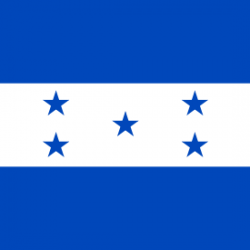
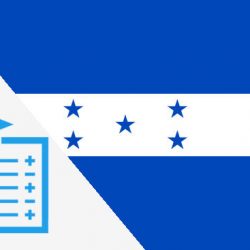

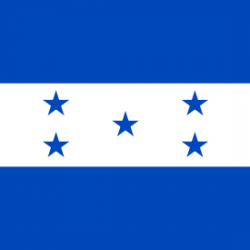
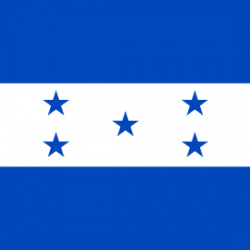

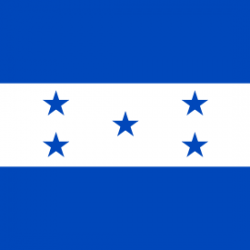
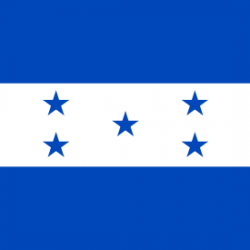
 We will not leak your personal information
We will not leak your personal information